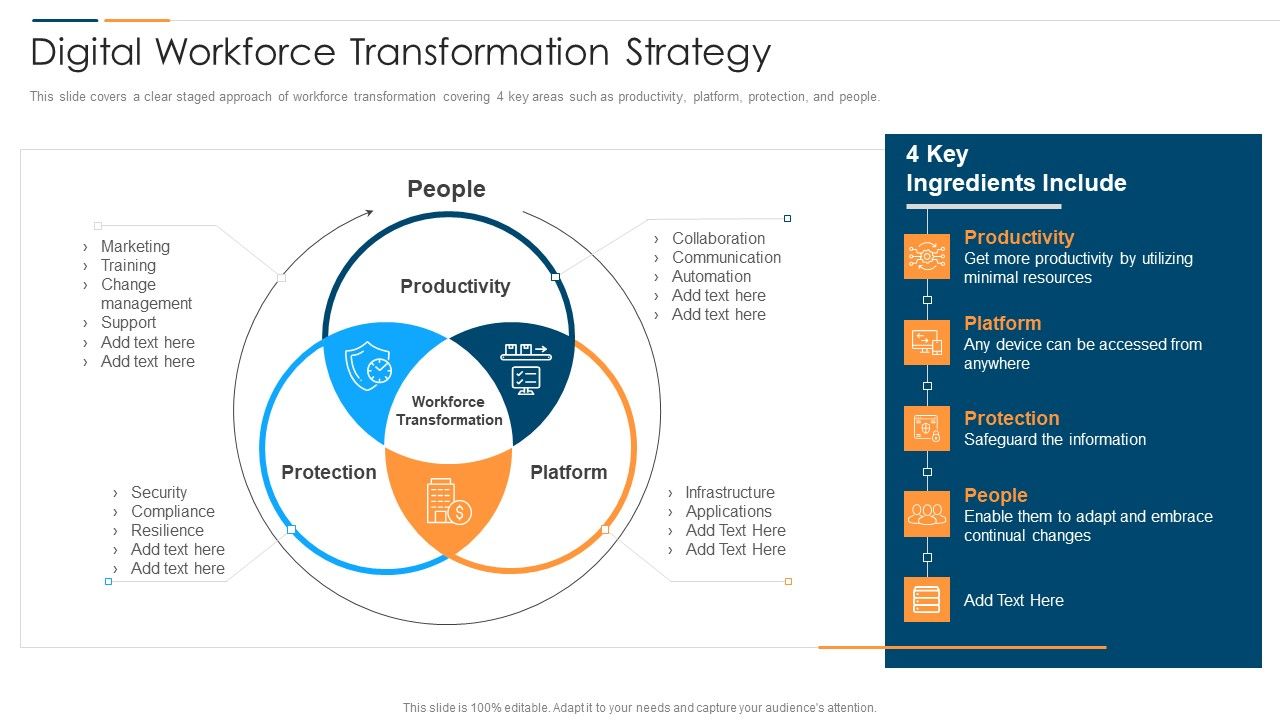 The Impact of Generative AI on the Workforce
The Impact of Generative AI on the Workforce
The emergence of generative AI is already transforming various industries and is predicted to revolutionize certain job roles in the near future. A report by the AI-Enabled ICT Workforce Consortium, formed by major tech companies like Google, IBM, and Microsoft, predicts that 92% of information and communication technology (ICT) jobs will experience significant or moderate transformation due to AI.
The consortium analyzed 47 specific ICT job roles across seven “job families” to understand the impact of AI on the workforce. These job families include business and management, cybersecurity, data science, design and user experience, infrastructure and operations, software development, and testing and quality assurance. According to their analysis, 96% of entry-level and 84% of mid-level positions will be significantly impacted by AI.
The report highlights that while all job roles will be affected to some extent, the biggest transformations will occur in business and management, design and user experience, and testing and quality assurance. In business and management, for example, AI can assist in creating product strategies, providing predictive analytics, managing large-scale projects, and automating processes.
To adapt to the changes brought on by AI, workers across all seniority levels will need to acquire new skills. These skills include AI-driven competitive analysis, AI integration strategies, machine learning literacy, prompt engineering, data science and visualization, and natural language processing (NLP). Additionally, skills related to the product development lifecycle, agile methodologies, process improvement, predictive analytics, data management, success KPIs, and statistical models will become increasingly relevant.
On the other hand, skills such as basic data analysis, manual data cleaning and preparation, task scheduling, basic report generation, documentation maintenance, and KPI monitoring will become less relevant.
The consortium identified 10 increasingly relevant skills, including AI ethics and responsible AI, AI literacy, prompt engineering, agile methodologies, data analytics, machine learning (ML), retrieval augmented generation (RAG), TensorFlow, and NLP. Conversely, 10 technical skills are expected to decrease in relevance, such as basic programming and languages, content creation, data management, research information, documentation maintenance, SQL, manual XML handling, manual Perl scripting, integration software, and manual malware analysis.
Enterprises must invest in AI training to remain competitive and innovative, attracting and retaining talent. Academic institutions should update their curriculum to include AI technologies and offer concise certificate programs, prioritizing investments in work-based learning initiatives and collaboration with secondary education institutions. Workers must embrace lifelong learning and actively seek reskilling and upskilling opportunities through employer programs, online courses, or certifications. Those entering the workforce can benefit from internships, mentorships, and hands-on projects.
The consortium plans to contribute to an “AI skills taxonomy” that maps skills to roles and defines required levels of proficiency. They will also introduce an AI Workforce Playbook to help enterprises reskill and upskill their workforces. Collaboration with stakeholders such as labor unions, academia, governments, and underserved communities will provide valuable insights. The consortium aims to collaborate with G7 governments on an AI Action Plan to ensure that populations are not left behind in the AI revolution.
Generative AI presents an unprecedented opportunity for technology to benefit humankind. It is crucial for individuals, organizations, and governments to act intentionally and proactively to adapt to the evolving job landscape and ensure a successful transition into the AI-driven future.

